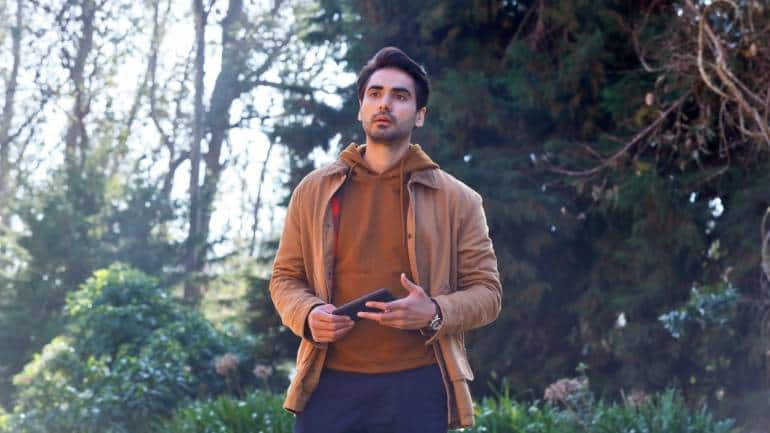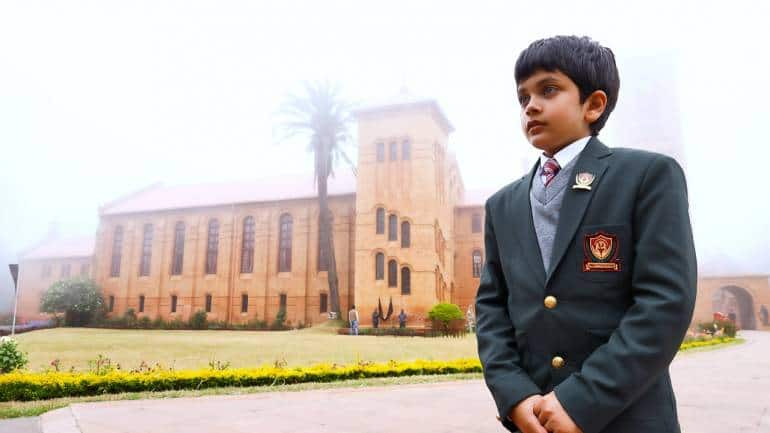



In a scene from Prime Video’s Adhura, a man who once bullied his classmate can’t help himself from repeating the act by pinching his behind. Something considered harmless all those years ago suddenly elicits an aggressive reaction. “Grow up," the subject says, to which the bully - somewhat dumbfounded - screams, “Move on! It happened 15 years ago.” It’s a moment that perfectly embodies the essence of a show that believes trauma has a half-life longer than that of any living being. It also has the ability to multiply, spread like a viral fever to more and more people until the well of secrets and contempt overflows into violence. Or in the case of Adhura, horror of a more literal nature. Directed by Ananya Banerjee and Gauravv K. Chawla, Adhura might be light on the scares but ably crafts a mystery that has its roots in trauma.
Alums Adhiraj and his classmates return to their school in Ooty 15 years later. It’s a familiar setting, the eerie, windswept backdrop of the hills that trades in mist and myth in equal measure. Adhiraj, played by the committed Ishwak Singh, is visiting at a time when the school is consumed an uneasy mystery of its own. Vedant, a young victim of bullying, has somewhat gone rogue, darting his crimson eyes at people with the intention of ripping them apart. He is clearly possessed by something. The backdrop of this coming together of two storylines is the friendship between Adhiraj and Ninad, a friendship that turns sour on the proposition of a romantic relationship. Told through flashbacks, Ninad’s homosexuality makes him the subject of derisive jokes and physical abuse. This cycle of abuse and bullying feels as systemic as it feels generational. From the very first scene, Vedant’s father enforces his will on the school’s reluctant dean by summoning political influence. He is, of course, a graduate of the same school.
There are eerie similarities between Adhura and the recently released School of Lies, except here, the bullying and the physical take on the form of conventional horror. While Adhiraj is on campus, he chases not one but many mysteries. The disappearance of his friend on the last day of school, Vedant’s possession, the accidents that begin to pile up while the old crew are on campus and so on. He is assisted in his somewhat puzzling quest by Rasika Dugal as Supriya, playing (in another similarity with School of Lies) the resident counsellor.
 Ishwaq Singh in 'Adhura'
Ishwaq Singh in 'Adhura'
When unsettling, surreal events begin to take place, Supriya, staunchly sides with her scientific interpretations. A Hindi teacher – of course - on the other hand counters with theories about the supernatural. Briefly touted as a battle between superstition and science, Adhura, however, commits to the fold of horror’s clichés. Sounds and shadows collaborate, to create visceral scenes, but Adhura also suffers from practically giving away its conceits, far too quickly. A big chunk of the narrative, in fact, is out of the door by the time a memorable representative of the law – played here by the returning Rahul Dev – makes a mark.
What works for Adhura, is its leading performances. Singh and Duggal are in their element, with a decent supporting cast in tow. Notwithstanding the casting of Vedant from the category of obvious visual tropes, the children pull off decent performances as well. Where the series comes up short, is in its visual palette, its inability to go beyond the compound of a school and actually mine its exotic location for character. To the point that you wonder if this had to be set on a hill-station at all. Secondly, Adhura, despite a fairly layered mystery, unfurled in not one, but many iterations, is also eager to give away its strongest cards. Once the horizon for expectations has been set, it becomes easier to approximate the thrills, see their plugs sparking long before their main act begins. It’s a flaw that undoes most of the good work that a series about trauma, trying desperately to horrify, can occasionally pull off.
 Shrenik Arora in 'Adhura'
Shrenik Arora in 'Adhura'
Adhura, as the name suggest is about the shelf-life of trauma, the very nature of abuse and its influence that cripples not just an individual, but entire institutions. The fact that friends gathered for a reunion can’t resist being their old selves, however embarrassing and problematic, is evidence of the viral nature of bullying. Power isn’t power until it is imposed. Those raised on drinking from its voyeuristic cups, grow up to be brutes incapable of accommodation and empathy. It’s a streak that the show highlights, rather smartly. Unfortunately, it’s a message the creators wish to package as horror, without the sobering, almost ethereal quality of a narrative that wishes to talk less but express more. To which effect, Adhura doesn’t exactly miss its target, but trips over trying to hit far too many, all at once. As a consequence, the dreariness of its present seems out of sync with a difficult but somewhat beautifully textured past. Violence isn’t just the act of the fist landing on the jaw, the makers seem to have forgotten. It’s also in the isolation, the disquieting blindness of the hills that become enablers of both hate and abuse.
Discover the latest Business News, Sensex, and Nifty updates. Obtain Personal Finance insights, tax queries, and expert opinions on Moneycontrol or download the Moneycontrol App to stay updated!